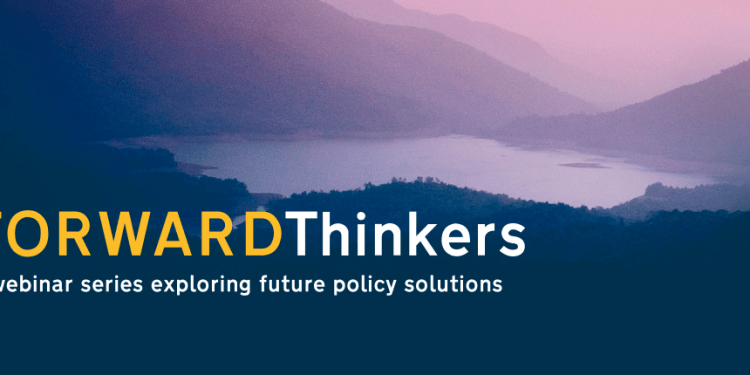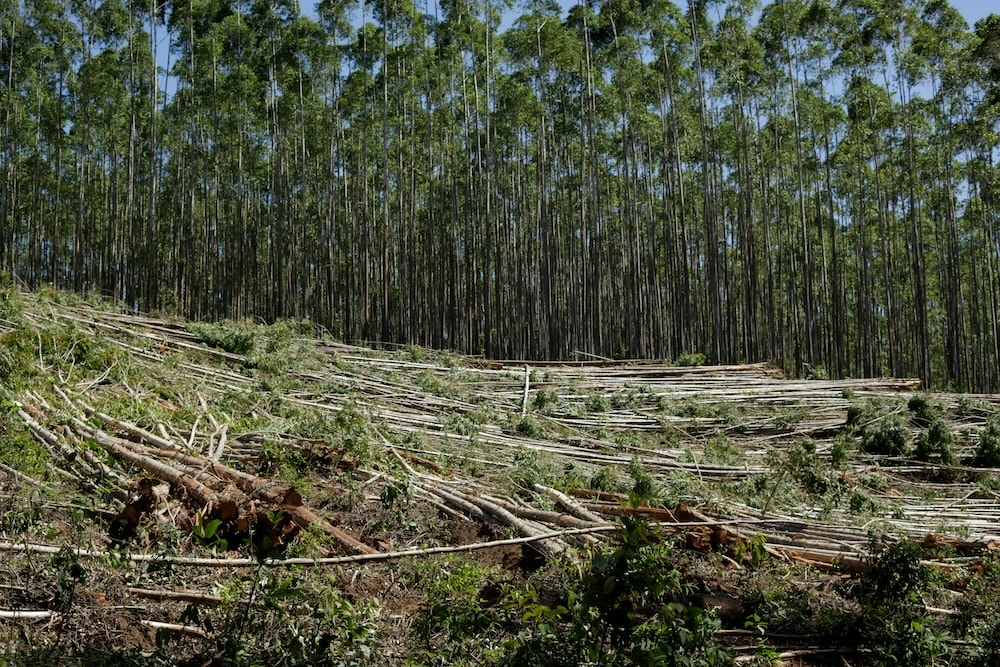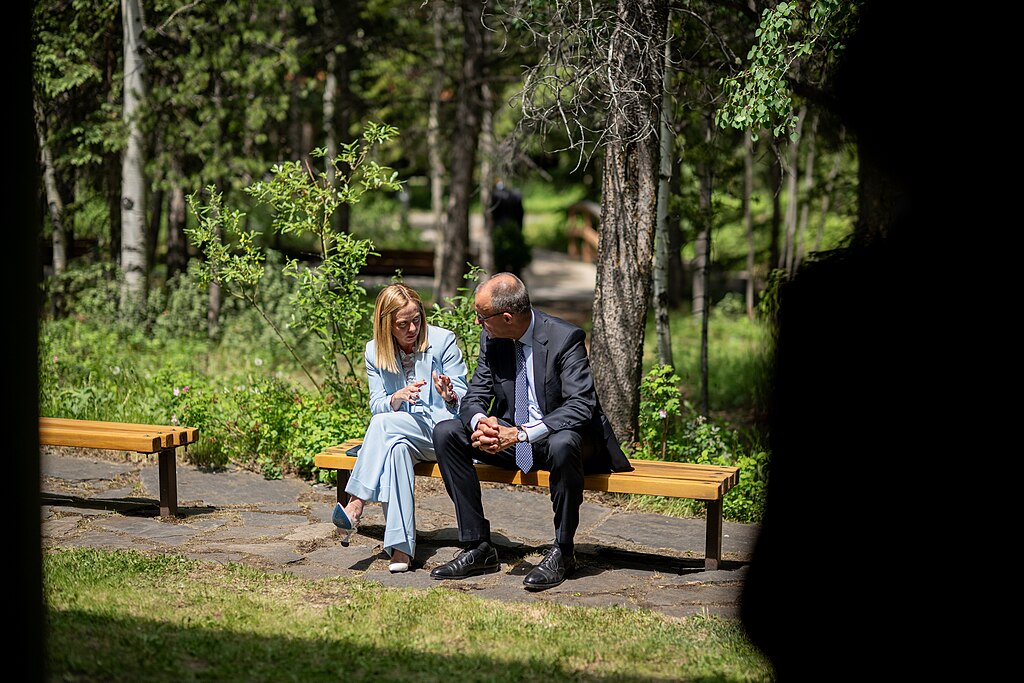Today, March 11, 2021, kickstarts the 2021 Forward Thinkers Webinar Series hosted by the World Future Council. Each of the five individual webinars will take place on a Thursday around one of the following international UN days: International Women’s Day, International Day of Forests, World Health Day, International Day for Biological Biodiversity, and World Oceans Day.
The series aims to share and discuss “existing and proven policy solutions to tackle the world’s most urgent challenges,” bringing attention to some of the world’s most pressing issues and hopefully encouraging more action. The webinars, which are free for all to attend, will have a variety of speakers from public and private backgrounds and will also introduce the past winners of the World Future Council’s Future Policy Award.
Below is an introduction to each webinar.
Protecting children in Africa from (sexual) violence during the pandemic
Thursday, 11 March 2021 | 11 am CET
Registration: https://zoom.us/webinar/register/WN_fT70f15hQlqARVF7_MqZlw
An estimated one billion children are exposed to some form of violence every year, with 25% of these children living in Africa. This problem has been compounded by widespread lockdowns and other social restrictions. Implemented with the goal of slowing the onslaught of the COVID-19 pandemic, lockdowns and curfews mean that children are forced to stay at home with relatives who are the most likely to perpetrate child abuse.
So while the pandemic has the world’s attention, children are facing violence and abuse at unprecedented levels. A child support phone line in South Africa reported a 36.8% increase in calls in August 2020 compared to the same month in 2019.
The webinar will delve into the effectiveness and potential of the “One Stop Centre” model that places all medical, legal, social, welfare, and counseling services for children under one roof. This model offers a greater chance of getting children access to all the necessary services they need.
Parents, families and individuals are understandably facing extreme stress due to the COVID-19 impact, but children should not bear the brunt of this.
– Christine Muhigana, UNICEF South Africa Representative
Covid-19: Forests offering solutions to recovery
Thursday, 18 March 2021 | 4 pm CET
Registration: https://zoom.us/webinar/register/WN_jUk2cnVzTtWgFW3bQRipfQ
The biodiversity and ecosystem services forests provide are countless. Humans across the world are dependent on the health and wellbeing of the world’s forests. According to The World Bank, “350 million people who live within or close to dense forests depend on them for their subsistence and income.” In developed countries, 25% of all medical drugs are plant-derived and in some developing countries, this number is as high as 80%.
The neglect of the importance of global forests is nothing new. However, the pandemic has worsened the situation as the resources that used to be dedicated to forest management and conservation have now been reallocated or withdrawn. Other impacts of COVID-19 can be seen through increased illegal logging, a loss of 40% of income from forest products, and more forest area loss. For example, the Global Land Analysis & Discovery reported a 77% increase in forest loss alerts since the pandemic began.
This year’s theme for the International Day of Forests is “Forest restoration: a path to recovery and well-being.” The webinar will build on this theme and present forests as a means for a sustainable recovery. A notable mention will include Africa’s Great Green Wall: A nature-based solution that brings economic opportunities and climate resilience to a region hard-hit by climate change.
Investing in forests is essential to build sustainable, resilient and fair societies, capable of withstanding future pandemics and global challenges like climate change and biodiversity loss.
– Alexander Trepelkov, Officer-in-Charge of the United Nations Forum on Forests Secretariat
From children’s health to public health and universal health coverage
Thursday, 8 April 2021 | 4 pm CEST
Registration: https://zoom.us/webinar/register/WN_2wwx0hWXSa-ktP8OCATGhQ
According to the World Health Organization, half of the world’s population does not have full access to essential health services. But even some of those who do have access pay huge amounts that push them into extreme poverty: 100 million people are living on $1.90 or less a day because they have to pay for healthcare.
Without free health coverage, people are vulnerable to the extortionate prices of medical bills. The World Future Council’s webinar aims to explore the impact of hazardous chemicals on (children’s) health as well as to highlight the importance of health, and more importantly, universal health coverage (UHC) as a buffer against people getting pushed into extreme poverty.
Universal health coverage means that all people have access to the health services they need, when and where they need them, without financial hardship. It includes the full range of essential health services, from health promotion to prevention, treatment, rehabilitation, and palliative care.
Preventing pandemics: Living in harmony with nature
Thursday, 20 May 2021 | 4 pm CEST
Registration: https://zoom.us/webinar/register/WN_hTRzld6nSTaqR0nKAQgVsw
As natural environments shrink, their biodiversity comes into contact with humans more and more often. It makes sense then that zoonotic diseases, those originating from animals, account for 60% of all human diseases and 75% of all emerging infectious diseases.
Related Articles: Child Abuse Survivors | The Great Green Wall | Rewarding Policies That Improve Lives | Achieving Universal Health Coverage | Our Ocean, Our Future
Common practice is to commit resources to vaccine development, virus containment and other lines of treatment. But this is merely treating the symptoms whilst ignoring the underlying cause. Human expansion into natural habitats is synonymously increasing our interactions with wildlife and our susceptibility to new diseases.
Taking place in the same week as the International Day for Biological Diversity, this webinar will reiterate the importance of protecting biodiversity and ensuring it is managed correctly.
The destruction of nature makes future pandemics more likely. More than ever, we need exemplary policies to protect biodiversity.
Preserving Diversity: Protecting 30 % of the oceans by 2030
Thursday, 3 June 2021 | 11 am CEST
Registration: https://zoom.us/webinar/register/WN_hB9ELE42QhuqpXQfHpl4Yw
Last but by no means least, the World Oceans day webinar will highlight the importance of the world’s oceans and elaborate on the necessity to protect 30% of them by 2030. It will bring attention to the urgent need for a High Seas Treaty that would enable better protection and conservation of parts of oceans that lie beyond national jurisdiction; these high seas make up 64% of the total ocean area and 95% of its total volume.
Our motivation to conserve our oceans should stem from an appreciation of their intrinsic value, be it the beauty, life or biodiversity. If we cannot manage this, we must at least appreciate the extrinsic value of oceans by what they do for us. For instance, over half the world’s oxygen comes from the oceans while humans caught 93.74 million tonnes of wild fish in 2015 alone, bringing an income to thousands and feeding even more.
Every person depends on the oceans to live — for seafood, jobs, wellbeing and oxygen. We need to take care of the oceans the way they have taken care of us.
— Anna Oposa, Councillor, World Future Council
Editor’s Note: The opinions expressed here by Impakter.com columnists are their own, not those of Impakter.com. — In the Featured Photo: Forward Thinkers: Webinar Series 2021 header. Featured Photo Credit: World Future Council.
















